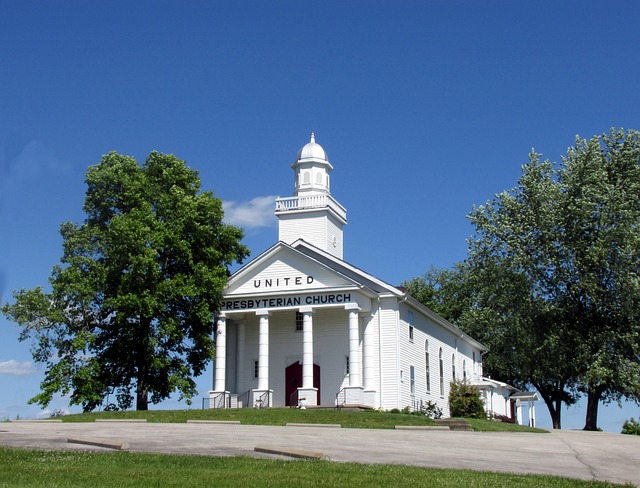Presbyterians are a Christian denomination known for their emphasis on the governance of the church by elected elders, their adherence to Reformed theology, and their commitment to education and social justice.
Table of Contents
History and Origins of Presbyterianism
Presbyterians are a well-known religious group, but what exactly are they famous for? To understand their significance, it’s important to delve into the history and origins of Presbyterianism.
Presbyterianism traces its roots back to the 16th century Protestant Reformation, which swept across Europe. The movement was led by influential figures such as John Calvin and John Knox, who sought to reform the Catholic Church and establish a more democratic and scripturally-based form of worship.
The term “Presbyterian” itself comes from the Greek word “presbyteros,” meaning elder. This reflects the unique structure of Presbyterian churches, where decisions are made collectively by a group of elected elders rather than a single authority figure. This democratic approach to church governance is one of the defining characteristics of Presbyterianism.
Presbyterians also place a strong emphasis on the authority of Scripture. They believe that the Bible is the inspired word of God and the ultimate guide for faith and practice. This commitment to biblical authority has shaped their theology and worship practices throughout history.
Another notable aspect of Presbyterianism is its Calvinist theology. John Calvin’s teachings, known as Calvinism, heavily influenced the development of Presbyterian doctrine. Calvinism emphasizes the sovereignty of God, the fallen nature of humanity, and the concept of predestination. These theological beliefs have had a profound impact on Presbyterian thought and continue to shape their understanding of God and salvation.
Throughout history, Presbyterians have been known for their commitment to education and intellectual pursuits. This can be traced back to the Scottish Reformation, where the establishment of universities and schools was seen as crucial for the spread of Reformed theology. Today, many Presbyterian denominations continue to prioritize education, with numerous colleges and seminaries affiliated with their churches.
Presbyterians have also played a significant role in the development of democracy and civil liberties. In the United States, for example, many of the founding fathers were Presbyterians who drew upon their theological beliefs to shape the principles of religious freedom and individual rights enshrined in the Constitution. This legacy of advocating for social justice and equality is still evident in many Presbyterian churches today.
In terms of worship, Presbyterians are known for their simplicity and reverence. Services typically include prayers, hymns, Scripture readings, and a sermon. The sacraments of baptism and the Lord’s Supper are also central to Presbyterian worship. The focus is on the Word of God and the communal experience of worshiping together as a congregation.
Presbyterianism has spread across the globe, with Presbyterian churches found in many countries. While there are variations in practice and theology among different Presbyterian denominations, the core principles of democratic governance, biblical authority, and Calvinist theology remain central to their identity.
In conclusion, Presbyterians are famous for their democratic church governance, commitment to biblical authority, Calvinist theology, emphasis on education, and contributions to democracy and civil liberties. Their history and origins have shaped their distinct identity and continue to influence their beliefs and practices today. Whether it’s their impact on society or their unique approach to worship, Presbyterians have left an indelible mark on the religious landscape.
Key Beliefs and Doctrines of Presbyterians

Presbyterians are known for their strong beliefs and doctrines that guide their faith and practices. These key beliefs and doctrines are what set them apart from other Christian denominations and have shaped their identity throughout history.
One of the central beliefs of Presbyterians is the sovereignty of God. They believe that God is in control of all things and that everything happens according to His divine plan. This belief gives them a sense of comfort and assurance, knowing that God is always in charge, even in the midst of difficult circumstances.
Another important belief of Presbyterians is the authority of Scripture. They believe that the Bible is the inspired word of God and the ultimate authority for faith and life. They hold a high view of Scripture and believe that it is infallible and without error. This belief guides their interpretation of the Bible and influences their understanding of God’s will and purpose.
Presbyterians also emphasize the importance of grace in their theology. They believe that salvation is a gift from God and cannot be earned through good works or personal merit. They believe in the concept of predestination, which means that God has chosen certain individuals for salvation before the foundation of the world. This belief in predestination is often a point of controversy and debate among Christians, but for Presbyterians, it is a fundamental aspect of their faith.
Another key belief of Presbyterians is the priesthood of all believers. They believe that every Christian has a role to play in the church and that all believers have direct access to God through Jesus Christ. This belief encourages active participation and involvement in the life of the church, as each member is seen as a valuable part of the body of Christ.
Presbyterians also place a strong emphasis on the importance of community and accountability. They believe that Christians are called to live in community with one another, supporting and encouraging each other in their faith journey. They believe in the power of corporate worship and the sacraments, such as baptism and the Lord’s Supper, as means of grace and spiritual nourishment.
In addition to these key beliefs, Presbyterians also hold to certain doctrines that shape their understanding of God and the Christian faith. One of these doctrines is the Trinity, which teaches that God exists in three persons: Father, Son, and Holy Spirit. They believe in the deity of Jesus Christ and the work of the Holy Spirit in the life of believers.
Presbyterians also have a strong commitment to social justice and the pursuit of peace. They believe in the dignity and worth of every human being and strive to promote equality and justice in society. They are often involved in various social and humanitarian causes, seeking to make a positive impact in the world.
In conclusion, Presbyterians are known for their key beliefs and doctrines that shape their faith and practices. Their strong belief in the sovereignty of God, the authority of Scripture, and the importance of grace sets them apart from other Christian denominations. Their emphasis on the priesthood of all believers, community, and accountability, as well as their commitment to social justice, further define their identity as Presbyterians. These beliefs and doctrines have guided them throughout history and continue to shape their faith today.
Presbyterian Church Governance and Structure
Presbyterian Church Governance and Structure
When it comes to the Presbyterian Church, one of the things they are famous for is their unique governance and structure. Unlike some other Christian denominations, Presbyterians have a system of church government that is based on the principles of representative democracy. This means that decisions are made by elected representatives rather than by a single individual or a small group of leaders.
At the heart of the Presbyterian system is the session, which is the governing body of an individual congregation. The session is made up of elders, who are elected by the members of the congregation. These elders are responsible for the spiritual leadership and oversight of the church. They work together to make decisions about worship, education, and other important matters.
Above the session is the presbytery, which is a regional governing body made up of representatives from several congregations. The presbytery provides support and guidance to the individual churches within its jurisdiction. It also has the authority to ordain and install ministers, and to make decisions on behalf of the churches it represents.
The next level of church government is the synod, which is a larger regional body that oversees several presbyteries. The synod provides a forum for presbyteries to come together and discuss matters of common concern. It also has the authority to make decisions on behalf of the presbyteries within its jurisdiction.
Finally, at the top of the Presbyterian Church’s governance structure is the General Assembly. This is the highest governing body of the church and is made up of representatives from all the presbyteries. The General Assembly meets annually to make decisions on behalf of the entire denomination. It has the authority to set policy, make changes to the church’s constitution, and address any other matters that are of concern to the church as a whole.
One of the benefits of this system of church government is that it ensures that decisions are made in a democratic and representative manner. It allows for a diversity of voices and perspectives to be heard and taken into account. It also provides a system of checks and balances, with each level of government having the ability to review and approve the decisions of the level below it.
Another benefit of the Presbyterian system is that it encourages collaboration and cooperation among churches. By working together at the presbytery, synod, and General Assembly levels, churches can pool their resources and expertise to better serve their communities. They can also learn from one another and share best practices.
Overall, the Presbyterian Church’s governance and structure is one of the things that sets it apart from other Christian denominations. It is a system that values democracy, representation, and collaboration. It ensures that decisions are made in a fair and inclusive manner, and that the voices of all members are heard. So, the next time you hear about Presbyterians, remember that they are not just famous for their beliefs, but also for their unique system of church governance and structure.
Contributions of Presbyterians to Society and Culture
Presbyterians have made significant contributions to society and culture throughout history. From their emphasis on education and social justice to their influence in the arts and sciences, Presbyterians have left a lasting impact on the world.
One of the most notable contributions of Presbyterians is their dedication to education. Many renowned universities and colleges were founded by Presbyterians, including Princeton University, Columbia University, and the University of Chicago. These institutions have produced countless leaders in various fields, shaping the intellectual landscape of our society.
Presbyterians have also been at the forefront of social justice movements. Their commitment to equality and fairness has led them to advocate for civil rights, women’s rights, and the abolition of slavery. Prominent figures like Martin Luther King Jr., who was a Presbyterian minister, have played a pivotal role in advancing these causes and inspiring others to fight for justice.
In addition to their involvement in social justice, Presbyterians have made significant contributions to the arts. Many renowned writers, musicians, and artists have come from Presbyterian backgrounds. For example, F. Scott Fitzgerald, one of the greatest American writers of the 20th century, was raised in a Presbyterian family. His works, such as “The Great Gatsby,” continue to be celebrated for their literary brilliance.
Presbyterians have also made their mark in the field of science. Many notable scientists, including James Clerk Maxwell and Francis Collins, have been Presbyterians. Maxwell’s groundbreaking work in electromagnetism laid the foundation for modern physics, while Collins, a renowned geneticist, led the Human Genome Project. These individuals exemplify the Presbyterian commitment to intellectual inquiry and the pursuit of knowledge.
Furthermore, Presbyterians have a strong tradition of community service and philanthropy. Their belief in the importance of helping others has led them to establish numerous charitable organizations and initiatives. From providing aid to those in need to supporting healthcare and education programs, Presbyterians have consistently demonstrated their commitment to making a positive impact on society.
Presbyterians have also played a significant role in politics and governance. Many Presbyterian leaders have held influential positions in government, both in the United States and around the world. Their commitment to ethical leadership and the pursuit of the common good has shaped policies and legislation that have had a lasting impact on society.
In conclusion, Presbyterians have made significant contributions to society and culture in various fields. Their dedication to education, social justice, the arts, and sciences has left an indelible mark on the world. From their involvement in civil rights movements to their contributions to literature and science, Presbyterians have consistently demonstrated their commitment to making a positive impact on society. Their legacy serves as an inspiration for future generations to continue striving for a better and more just world.
Conclusion
Presbyterians are famous for their emphasis on the sovereignty of God, their form of church governance through elected elders, and their commitment to education and intellectual pursuits.


